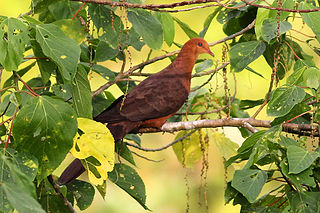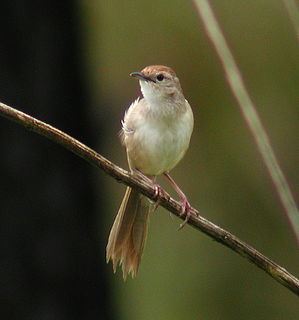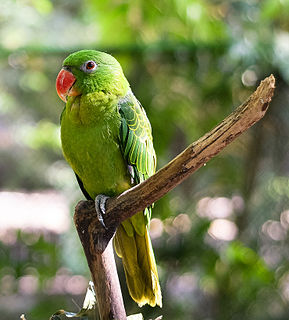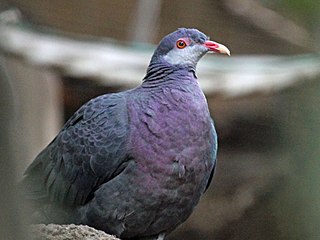 W
WThe balicassiao is a species of passerine bird in the family Dicruridae. It is endemic to the Philippines.
 W
WThe blue-tailed bee-eater is a near passerine bird in the bee-eater family Meropidae. It is widely distributed across South and Southeast Asia where many populations are strongly migratory, and seen seasonally in many parts but breeding colonially in small areas across their range, mostly in river valleys, where the nest by tunneling into loamy sand banks. They are seen mostly in open habitats close to water.
 W
WThe besra, also called the besra sparrowhawk, is a bird of prey in the family Accipitridae.
 W
WThe Philippine honey buzzard is a species of bird of prey in the family Accipitridae.
 W
WThe citrine canary-flycatcher is a species of bird in the family Stenostiridae. The term citrine refers to its yellowish colouration. It is found in Sulawesi and the Philippines. Its natural habitat is subtropical or tropical moist montane forests.
 W
WThe spotless crake is a species of bird in the rail family, Rallidae.
 W
WThe Philippine cuckoo-dove is a species of bird in the family Columbidae. It is found in the Philippines and Taiwan and is rated as a species of least concern on the International Union for Conservation of Nature Red List of Endangered Species.
 W
WThe Philippine collared dove is a species of bird in the family Columbidae.
 W
WThe black-chinned fruit dove, also known as the black-throated fruit dove or Leclancher's dove, is a medium-sized bird of the family Columbidae. The male is a colorful bird with a green belly and wings, a brown tail, a whitish grey head and neck with a purple base, red iris and a small black patch under its yellow bill. The female has a green head, neck and breast.
 W
WThe Philippine drongo-cuckoo is a bird of the cuckoo family found only in the Philippines. It belongs to the genus Surniculus along with the Asian drongo-cuckoo. The two were previously classified as a single species but are now often separated based on differences in calls and juvenile plumage.
 W
WThe spangled drongo is a bird of the family Dicruridae. It is the only drongo to be found in Australia where it can be recognised by its black, iridescent plumage and by its characteristic forked tail. It feeds on insects and small vertebrates. It has complex and varied calls and is a mimic of the sounds it hears. It arrives in Queensland in late spring and breeds high in an isolated tree, producing three to five young each year.
 W
WThe Philippine duck is a large dabbling duck of the genus Anas. Its native name is papan. It is endemic to the Philippines. As few as 5,000 may remain. Overhunting and habitat loss have contributed to its decline.
 W
WThe spotted whistling duck is a member of the duck family Anatidae.
 W
WThe rufous-tailed jungle flycatcher is a species of passerine bird in the Old World flycatcher family Muscicapidae. It is found in Indonesia, Malaysia, and the Philippines. Its natural habitat is subtropical or tropical moist montane forests.
 W
WThe turquoise flycatcher, also known as the island flycatcher, is a species of bird in the family Muscicapidae. It is found in Indonesia and the Philippines. Its natural habitat is subtropical or tropical moist montane forests.
 W
WThe Philippine frogmouth is a nocturnal bird that is found throughout the Philippine archipelago. It is common in lowland forests and maturing second growth. Little information is known about the bird. It feeds on grasshoppers, cicadas, crickets and beetles.
 W
WThe striated grassbird is an "Old World warbler" species in the family Locustellidae. It was formerly placed in the family Sylviidae. It is now the only species placed in the genus Megalurus.
 W
WThe tawny grassbird is a songbird species of the grass- and bush-warbler family (Locustellidae). It was formerly placed in the "Old World warbler" assemblage.
 W
WThe comb-crested jacana, also known as the lotusbird or lilytrotter, is the only species of jacana in the genus Irediparra. Like other jacana species, it is adapted to the floating vegetation of tropical freshwater wetlands.
 W
WThe grey-throated martin or Asian plain martin is a small passerine bird in the swallow family.
 W
WThe Philippine megapode, also known as the Philippine scrubfowl or the Tabon scrubfowl, is a species of bird in the family Megapodiidae. It is found in northeastern Borneo, Sulawesi and the Philippines. Its natural habitats are subtropical or tropical dry forest, subtropical or tropical moist lowland forest, and subtropical or tropical moist montane forest.
 W
WThe Mantanani scops owl, is a small owl in the scops-owl genus Otus found on small islands between Borneo and the Philippines. It is listed by the IUCN as "near threatened" because its range is limited with its population being fragmented on several different islands, and its forest habitat is being degraded by ongoing logging and clearance.
 W
WThe blue-backed parrot, also known as Müller's parrot or the azure-rumped parrot, is a large bird native to the Philippines and the Sulawesi archipelago (Indonesia). It is found in forest and nearby habitats, including cultivated areas, at altitudes up to 800 meters. Flocks are small and often active at night. It is known to eat crops, including corn.
 W
WThe spotted imperial pigeon, also known as the grey-necked imperial pigeon, is a species of bird in the family Columbidae. Endemic to the Philippines, it lives in forests and forest edges. It is a vulnerable species threatened by habitat loss and hunting.
 W
WThe metallic pigeon, also known as white-throated pigeon is a medium-sized, up to 37 cm long, bird in the family Columbidae.
 W
WThe barred rail is a species of bird in the rail family Rallidae. The species was formerly placed in the genus Rallus.
 W
WThe streaked shearwater is a species of seabird. The adult bird averages 48 cm (19 in) in length, with a 122 cm (48 in) wingspan.
 W
WThe Java sparrow, also known as Java finch, Java rice sparrow or Java rice bird, is a small passerine bird. This estrildid finch is a resident breeding bird in Java, Bali and Bawean in Indonesia. It is a popular cage bird, and has been introduced into many other countries. Some taxonomists place this and the Timor sparrow in their own genus Padda.
 W
WThe Philippine spine-tailed swift, also known as the Philippine needletail, is a species of swift in the family Apodidae. It is endemic to the Philippines. Its natural habitat is subtropical or tropical moist lowland forests. It is becoming rare due to habitat loss.
 W
WThe uniform swiftlet,, also known as the Vanikoro or lowland swiftlet, is a gregarious, medium-sized swiftlet with a shallowly forked tail. The colouring is dark grey-brown, darker on the upperparts with somewhat paler underparts, especially on chin and throat. This species is widespread from the Philippines through Wallacea, New Guinea and Melanesia. It forages for flying insects primarily in lowland forests and open areas. It nests in caves where it uses its sense of echolocation, rare in birds, to navigate.
 W
WThe Philippine leaf warbler is a species of Old World warbler in the family Phylloscopidae. It is found in the southern half of the Philippines.
 W
WEverett's white-eye is a bird species in the disputed family Zosteropidae, which might belong with the Old World babblers (Timaliidae). The name commemorates British colonial administrator and zoological collector Alfred Hart Everett.
 W
WThe white-breasted woodswallow is a medium sized passerine bird which breeds from the Andaman Islands east through Indonesia and northern Australia. The name "woodswallow" is a misnomer as they are not closely related to true swallows. Instead, they belong to the family Artamidae, which also includes butcherbirds, currawongs and the Australian magpie.